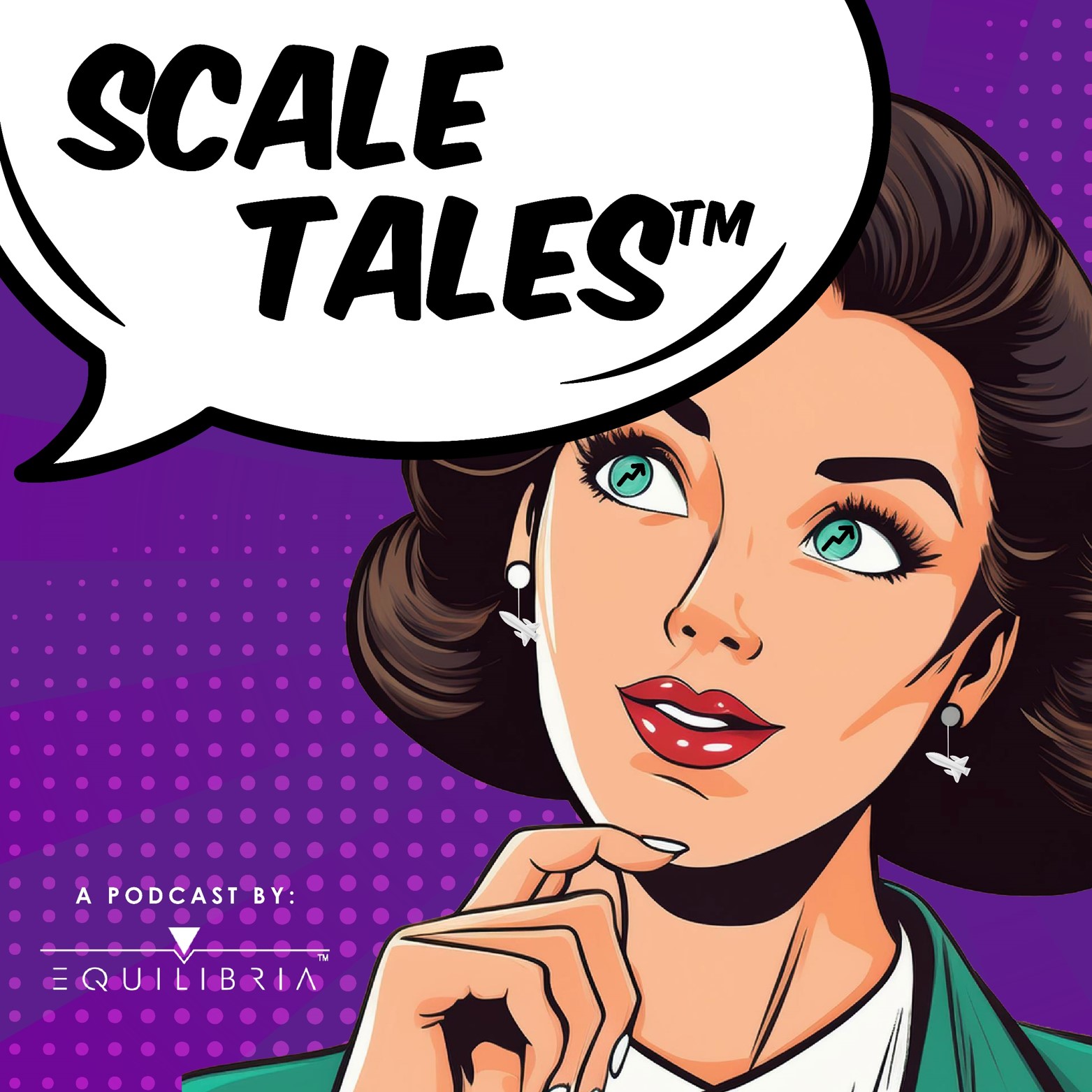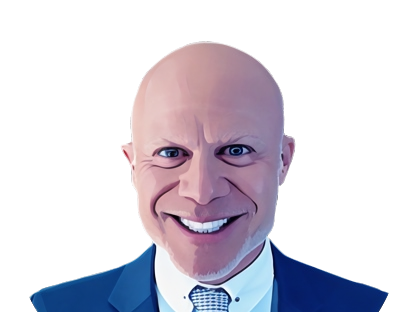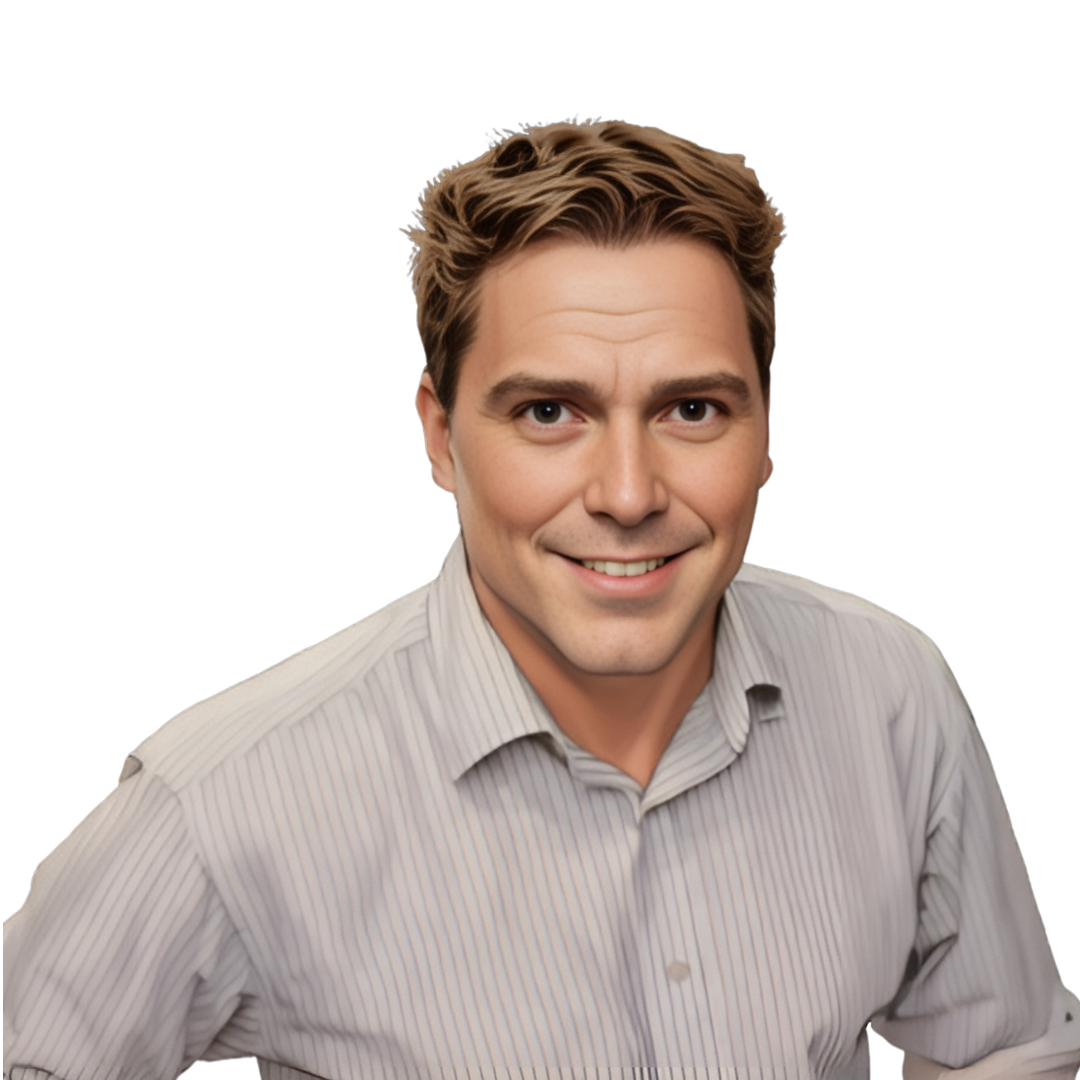Transcript
This podcast is brought to you by Equilibria, Inc. Did you know you can earn PDUs from listening to this show? It’s easy, accessible, and submitted directly to PMI. Keep listening to learn more.
Equilibria, Inc. Equilibria provides training to assist fast-growing companies in documenting and improving their key processes for maximum operational performance. Visit EQBsystems.com to stop the chaos of fast growth and start flowing today! EQBsystems.com.

Welcome to Scale Tales – the business storytelling podcast where entrepreneurs, executives and experts share firsthand accounts of those magical moments when they achieved something bigger than even they could have imagined.
I’m Alicia Butler Pierre and I’m always amazed by the power of the mind. Mindset, to be more exact. A positive mindset, a willingness to work smart, and a relentless pursuit for achieving customer satisfaction seems to be the hallmarks of every successful person. Yet, some achieve success bigger and faster than others? Why? Is it that they’re smarter? Do they work harder? Are they luckier? You’re about to hear from someone who will help answer these questions for you.
This is Ep. 32: How Jake Smolarek Scaled a Multi-Million Pound Construction Business with Zero Experience.
I am Jake Smolarek life and business coach and owner of a digital marketing agency. I am currently in London, England and this is my scale tale.

It started on 19th of December 2004. I actually came to England from Poland. I am originally from Poland. When I was 19, I came to the UK with about £150 in my pockets, which is about $180 and a massive dream that I really wanted to be
successful.
I had no idea what being successful mean at the time, but I really wanted to have more in life. So when I came to the UK I landed at Gatwick Airport, which is the second biggest airport in the UK and immediately I had to spend about £39, which was about 1/4 of my fortune on a ticket to a small town. I remember that it was so scary to me, being 19 years old, speaking communicative English but being in a completely different country. I visited different countries before but it was the first time on my own.
I was heading to a small town called Abergavenny, which is beautiful small town in Wales where I was about to start my first job in the restaurant. The funny thing is when I was heading to that restaurant, I kind of knew that this restaurant was only about a one-star restaurant. And I was thinking like, Oh my God, it’s only one-star restaurant. And when I came there, and I started working I thought like actually it’s not too bad over here. And then they have to explain it to me that you know, one Michelin star is actually not too bad. It’s actually a good restaurant.
When I was working that restaurant, I, I kind of knew that I want to start my own business. I always wanted to work for myself. And eventually after a few months working at that restaurant I decided that this small town is just not enough.
And I went on my journey to start my first business. I left Wales. I went to Derby, a little bit bigger town. And then from Derby I landed in London. And then I thought Yeah, London, this is the city where I belong. I was very new to London, but straight away could see that this is the place that I want to be. Funny enough, sometimes people ask me, even today, why London? London is so expensive.
Because that’s where the money is, UK it’s a big economy. Like it’s over 3 trillion economy, and one third of it is in London. So, yeah, this is where the money is.
By now, it’s 2005 and, at 20-years-old, Jake is still very young. He arrived in London eager to start a business, but had no idea how. That’s where his ambition, drive, and sheer determination forced him to make a daring move.
I need to find someone who will help me start that business. Because I knew nothing about running a business. I knew that I wanted to be financially dependent, but I didn’t know where to start.
So I started searching online, searching people, asking people for advice, looking for investors, looking for anyone to help me to start that journey on running your own business. And eventually I found a guy named Patrick. And Patrick invited me for a coffee in Mayfair, which is like one of the most expensive areas in London, actually one of the most expensive areas in the entire world.
There’s an interesting story about how Jake met Patrick, but more on that later. At their first meeting, Patrick had a simple question for Jake.
“What is it that you actually want?”
This is a very good question because I was very vague about what I want, but I wasn’t very specific. And he said, “If you want to be successful, how much money do you want to earn?”
And I had no idea. I didn’t have a number in my head. Today, as a life and business coach, I know that you need to ask tough questions. I know that you have to be very specific. But at the time when I was 19, 20 years old, I had no clue.
And, I was trying to figure it out. I said, “Oh, I want to make, I don’t know, £50,000 a year.” And he look at me, he kind of laughed a little bit, but in a nice way. And he said like,
“Okay, you have to start somewhere, okay, 50,000 pounds. You have to start your own business.”
And I said, “Yeah, I love to do that, but how do I do that?” And then Patrick just look around and he saw scaffolding, you know, people are repairing a building in Mayfair somewhere. And he said,
“You have to start a construction business.”
And I was like, “Yeah, but I know nothing about construction. How do you want me to start a business if I know zero about construction? I know how to use a hammer, but that’s probably it, you know.” And he said those magical words,
’’Listen to me, you have to build a system. Don’t build yourself a job, build a system, use other people to build your dream. This is how it works. Don’t create yourself a job.’’
And I was like, okay, that’s it. I just made a decision. That was probably my quickest decision in my entire life at that moment.
And just like that Jake started a construction business, well, at least on paper.
So the next day I printed my first business cards. In the next week I had my crappy first website.

It wasn’t the best of the best and in the next two weeks I found my first customer. Until today, I have no idea how I managed to tell this client a price and then I doubled that price because I thought, Oh, I’m not going to have enough profit. And this guy somehow went ahead with me.
Call it luck, call it fate, but what Jake did as a 20-year-old immigrant in a new, much larger city, was impressive! There’s something to be said about those who only see opportunities and not obstacles
And in the next five, six, seven weeks we did renovated a small coffee shop near Liverpool Street, a very famous train station in London. I managed to find contractors, put them all together, being kind of like a middleman. I finished that project, the client was happy, the contractor was happy and somehow I managed to earn about two thousand pounds, which is about two and a half thousand dollars. And this is how I started running my own construction business.
I found another customer and another customer and we went from doing £10,000 per project, then 20,000, then 30, then 50, then eventually I found a business partner which was a big deal for me because running a business on your own is one thing, but running a business with someone else, that’s completely different story. I remember when me and Alex, we hit 100k turnover one day and I said I think we should hit 1 million.
And Alex straight away was like, “Oh my God, he’s so crazy. You’re always thinking those big dreams.” And I said, “Yeah, but 100k and 1 million, it’s only a zero difference, you know, it’s just one zero.” And it actually turns out that running a 100k construction business and running a 1 million turnover business, it’s actually no
difference.
Because the energy you spend talking to clients, talking to contractors, talking to everyone is basically just running the whole show. It takes exactly the same amount of energy on 100k and 1 Million. And eventually I even find out that even 10 million is, is exactly the same amount of time and the same amount of energy.
Jake and his business partner, Alex, were on a roll. While Jake hit the streets of London procuring work, Alex made sure the jobs Jake sold were completed on time, within budget, and that their customers were happy. Then something unexpected happened. About three years after the business started, a big credit crunch happened. And just like that, Jake and Alex lost everything.
It completely wiped us out. We’ve been left with nothing and even more debt. I called Patrick and I said, “Patrick, I’m afraid I just lost everything.” And he said,
“Congratulations! That’s your first bankruptcy. If you go bankrupt three times, this means that you are a proper entrepreneur. Two to go, Goodbye.”
And I was like, Oh my God! I thought he’s going to be a little bit more supportive. I thought that he’s going to say like, oh, poor Jake. But that was no poor Jake. If you fail, you have to start again. And I learned failure is the wrong word. Instead of saying failure, we should say “feedback,” because it’s all about feedback. The real failure is where you actually stop trying. But if you keep trying and keep trying and keep trying, that’s not failure, that’s getting some feedback and trying again.
So, Jake turned what some might call a failure into feedback and, started a new construction business.
And after about six to 12 months, we have rebuilt that business all over again. And at that time, I have systemized that business, which means I didn’t really have to work on that business as much as before because I, I learned that delegation is the best thing in the world.
There was a moment in my life that when I was running that construction business, I had like four mobile phones and I was busy all the time. I was answering those phones all the time. I was on the phone all the time. If one phone wasn’t ringing, then another two or three were ringing. I remember I got sick or something happened that I was just so tired I couldn’t answer any of my phones.
And for about two days I didn’t answer any of them. And suddenly all of those phones, they went completely quiet. And then after three days, I started ringing everybody around. I said, “Hey John, you called me three days ago.” And he said,
“Oh no, no, don’t worry about it.”
I was like, oh, okay. And then I called another person. “Hey Bob, you called me about two days ago. What’s going on? How can I help you?”
“Oh, don’t worry about it. It’s already sorted out.”
I learned that you don’t have to be busy all the time. The thing when running your own business, it’s all about to be productive. Delegation is one of the best things we can do because other people, they also have brains, they also can make decisions. When I wasn’t around, somehow other people started making decision for me, which was amazing. From that time, I remember I get rid of all of the phones. I only have one phone and I barely started answering that phone.
You have to be master of your schedule rather than schedule being master of you. And I remember from that time my construction business was running like a proper system. I started working on other things.
One of those other things Jake started working on was a small non-profit organization.
It was basically two volunteers, me and my other business partner. And we started growing. It was like a side hustle for me. But that small side hustle started to grow rapidly. In the next about three or four years went from two volunteers to 600 volunteers.
Once again, Jake successfully scaled another business in record time. But this time, itgot the attention of someone he didn’t expect.
I remember one day I was really angry and I went home and I opened the letter. That was a letter from the Queen. Oh that’s a little bit of a surprise! But when you do good things, good things will come back to you. This was another really good lesson that I’ve got from running a non-profit organization.
Funny thing is because it’s a non profit, we didn’t make any money from it. We’ve been investing lots of time in that business. But until today I still have such amazing contacts that people still ask me, “Hey, could you connect me with this person?”
And I always say well you can always start your own non-profit organization running it for about seven years working about 18, 20 hours a day. And you can have any contacts you want in the entire world, but you just have to work really hard. It’s not that difficult.
You would think that Jake’s drive and thirst for business success would have been satisfied and quenched considering his accomplishments with the construction business and the non-profit organization. But, it wasn’t. In fact, Jake started yet another business.
I love marketing. I love working on brands. I love sales. And I understood that everything around running any business is up to lead generation. If you don’t generate leads, you’re not going to run a business. And it doesn’t matter what business it is, if it’s a construction business, if it’s even a non-profit organization, we call them non-profit but every non-profit organization actually has to make profits otherwise it’s not going to survive.
So I started another side hustle. I started a small marketing agency with Google Ads. I remember talking to a friend who was running a fairly big business also here in London. He been asking me for months, maybe even for years, to help him with his marketing, especially Google Ads.
And I said, “I don’t have the time. I’m very busy running construction business. I’m extremely busy running non-profit organization. And now you want me to do your Google Ads? I don’t have time for that.” And then he’s like, yeah, but I pay you this. And I was like, oh, that’s a significant amount of money. That would be interesting.And then I said, “Okay, listen, even if I say yes, tell me, why me?”
What is it about me that you want me to run your Google Ads. And then he said those magical words,
“I trust you because every single time you come to our office, you tell us so many great things, so many great golden nuggets. You have so much energy. You should start your own agency.”
Jake’s clearly not one to step away from an opportunity, especially one that includes work he enjoys at an attractive payrate. So, he started his third business.
It was a very small agency, basically I had my first client. And the next day I was like, well, if I have one client, obviously I need some people to work for me. I’m not going to do everything myself.
Because coming back to what Patrick told me so many years ago, create systems, don’t create yourself a job. And I didn’t want to create myself job. As much as I love creating campaigns and actually running Google Ads. It’s not something that I can do on everyday basis because it takes a lot of time. So obviously I need to hire some people and when you hire people you need to pay them.
Having one client is not enough. So what I did is, I took my phone and for about two days from morning till evening, I was calling anyone that might be a good customer for my marketing agency. And after two days of calling people I closed either eight or nine customers.
So in about three days time, I had a proper full time digital marketing agency. What I love about marketing agencies or businesses like this, it’s a subscription-based business that obviously you have to do a really good job. But if everything is fine, no one is even calling you. Nobody’s asking you what’s going on because the leads are coming in.
As refreshing as it was to not have clients constantly calling and inquiring about things, it was also a bit jarring for Jake. So much so that one day he realized he had not heard from his friend/first client, the one who originally asked for his help with Google Ads.
I called him after about three or four months and I said, “What’s going on? Are we doing a bad job?”
“No, no, kind of opposite. Everything is so good! The customers are calling, the business is growing, everything is running so smoothly. We’re so busy running the business. I don’t have the time to talk to you.”
I was like, “Well at least you could call and say thank you, you know?” Another funny thing is I remember after about two years having amazing Google Ads campaign is 50% of the success. Another thing is having a really good website and working on CRO, which is conversion rate optimization. It’s ongoing process of making your website better. It’s something that Japanese called kaizen. Kaizen is basically a philosophy when we’re getting better constantly, all the time. And that was what I was explaining to this first client.
Okay, I must add a correction to what Jake said. Being that I have a background in Lean Six Sigma, which is a quality framework for process improvement that is rooted in Japanese management philosophies, I know that kaizen really means “rapid transformation,” not “continuous improvement,” as it’s often mistakenly translated. Nevertheless, Jake is right about operating a business in the spirit of continuous improvement.
And after about two and a half years of running his campaigns, he asked me,
“Jake, we’ve been doing business for such a long time. We’ve been friends for such a
long time, maybe you could give me a discount.”
And then I, I paused for a moment and I was like, “Listen, how about you pay me more? Because we friends and we’ve been doing a business for such a long time and I help you grew your business because it works both way, you know? I can give you this, but at the same time, why wouldn’t you pay me more We basically doubled your business.”
And he paused for a second and he said,
“You’re 100% right, I will pay you double from now.
And he did.
How’s that for confidence?! When I prepared for this interview, I knew that Jake also has a fourth, yes a fourth business. He’ll tell us about that business plus fill us in on some juicy details he’s left out so far. Things like, how did he meet his mentor Patrick? How did he build a team? And how on Earth does he manage four businesses at the same time? You’ll discover that and more after the break.
Are you a certified Project Management Professional? Just imagine, you can literally listen and learn while you earn credits. Yes, even while you’re taking a long walk, driving to or from work, even while you’re on an airplane. The good thing about our podcast episodes is that you don’t have to watch them in order to earn your PDUs. In three easy steps – Visit ScaleTalesPodcast.com, sign up for a membership, take a short quiz and we’ll submit your credits to PMI. Yes, it’s really that simple and all at a price that makes this information accessible wherever you are. No gimmicks, no games. It’s really that simple! ScaleTalesPodcast.com.
Jake Smolarek is a serial entrepreneur full of energy, passion, and enthusiasm. These characteristics along with his guerilla marketing techniques contribute to his success in not just one but four businesses that are operating at the same time!
Before the break we learned how Jake started his entrepreneurial journey with a construction business a multi-million-pound business. Before the break he mentioned a conversation he had with his friend. That friend that asked if Jake would consider lowering his prices for digital marketing services. Jake shocked him by offering to increase his price. Once he explained why, it made me wonder if that conversation is what led him to start his coaching business. Let’s find out!
Here’s Jake.

The coaching business started when we started the non-profit organization. I always had people coming to me for advice. Even when I was very young, like 23, 24, 25, already running my own business.
And I was like, you are 65, I’m 25, it should be the other way around, right? So I started attracting people asking for advice. It was so natural to me. I don’t know why. I still can’t explain it. As human beings, we love progress.
Progress is the only thing that actually makes us happy in life. If we don’t make progress, we unhappy. If we make progress, we are very happy. But, there is a big
but, if we do not measure that progress and we don’t actually see that we make progress, we might end up being very miserable. As a business coach, marketing coach, entrepreneur coach, I noticed that a lot of entrepreneurs, they are very
successful, they making loads of progress.
But because they never measure that progress, they think they not actually successful. I think it was Mr. Drucker who said, “What get measured gets done,” because we need to see that progress. There’s a very good saying that from time to
time we should stop and smell the roses. Right? It doesn’t mean that we have to stop and not do anything for two years in a row.
but at the same time, it’s good to stop, at least from time to time, and do that step backwards so you can do another three steps forwards.
As fascinating as Jake’s scale tales are, I know how important the details are. So I decided to start asking him some clarifying questions, starting with why did he move from Poland and how did he really meet Patrick? The guy who ultimately became his mentor when he first moved to London.
I wanted something more. Don’t take me wrong, Poland is a beautiful, amazing place today, but 20 years ago, it wasn’t so great. It was good enough, but it wasn’t good enough for me. I wanted to see the world. I wanted to do more. I had massive dreams.
I didn’t know how to achieve them at the time. I just knew that London, that’s where the money is. London was a capital of the world at that time. Well, let’s say there are two capitals, New York and London. London wasn’t as far as New York.
But I was so desperate to find someone who is already successful and rich. I was looking for those people everywhere, asking people at the street, which is very difficult for me because I’m a proper introvert and I hear “no” all the time. No, no, no. And we have this portal, Gumtree, which was very big at the time in the UK. It’s just like one of those website that you can buy everything, sell everything, advertise your business like CraigsList in the U.S.
And one day I found this ads that the millionaire is looking for a wife. And I was like, okay, that’s interesting. It was written in such amazing language. It wasn’t average, it was something special about it. The level of the words he was using and how he was saying you don’t have to be just pretty, but it has to be this and this and this. And Iwas like, f*ck it, I’ll send him an email, right?
Hey Patrick, my name is Jake and I’m a young, aspiring entrepreneur. By the way, I’m not looking for a husband and I’m not wife material. I’m just looking for a mentor and
blah, blah, blah, blah, blah. I am not a wife material and I’m not looking for. And I’ll repeat that at least seven times in that email.
He replied to my message something like, Call me tomorrow at 10 o’clock in the morning, this is the number. Come and meet me at this coffee house. Be sharp. And I was like, Okay, that’s very to the point. Right?
This is how it started. And he was laughing after our first meeting when all the tension went away. He said,
“Your English was so funny.”
I was young. I was an immigrant, which I’m still.
Jake’s email to Patrick was funny, and…bold! But it still doesn’t answer an important question – how did Jake as a young immigrant with no construction background manage to land a client within two weeks of starting a construction business? If he couldn’t do the work himself, how did he manage to solicit contractors who could do the work?
To be honest with you, it’s a mystery to me even to this day. I have no idea how I convinced. But I’ll tell you that when I was looking for contractors, I was using Gumtree and I posted those ads saying, “Established construction company is
looking for contractors to do this amazing work.” Blah blah, blah blah blah. I was very good at marketing at the very beginning and the response was massive. Loads of people, message me, called me, email me. And then I remember sitting at many Starbucks for the next few days.
And from morning till evening I was meeting with different contractors. I have a notepad and I was giving them stars from 1 to 5 stars saying like this guy was drunk during the meeting and was smelling really badly. And oh, this guy was four and a half stars. He was really good. His knowledge was very good. And this guy have a massive team and this guy have a team of two and this guy have a team of five.
And at the same time I was talking to anyone I could trying to find my first customer. Hey, do you need a construction company? No. Okay, thank you. Do you need a construction company? No. Okay. Do you need a construction company? Basically I was using any tool I could, and somehow I found this first customer. I think it was via Gumtree as well.
The copy that I use for my ad to find clients, it wasn’t me, it was Patrick, who told me to put bullet points. You have to say that you have 35 years of experience. And I was like, yeah, I’m 20 years old.
I’m sure they’re going to believe that, right? It’s like. No, it’s marketing. If you find seven construction people and all together, if they have 35 years of experience, that’s 35 years of experience. And you put this on the business card. I never thought about it this way but technically that’s true.
And just as Patrick’s ad copy lured, or prompted, Jake to reach out to him for mentorship so did Jake’s ad copy lure the contractors and other key team members he needed for future projects.

I was lucky enough that I had found really good people from the very beginning. Don’t take me wrong. I knew very little about construction. They have to correct me often. We had loads of funny stories and somehow people like that good energy around us. Eventually when I had my first business partner and then second business partner, I was the guy talking to clients. And they were basically taking care of all the real work.
I was a salesperson. Once I sold, I gave it to my business partner and they did the work itself. They were happy because they were not salespeople. You know, construction people, more often than not, they not salespeople. They not marketing people.
Sometimes they ask me, how do you do that? How do you sell so well? And I said, there’s a little secret. You see, most people, they sell houses and I sell homes. And that’s a massive difference, you know, because people, they don’t care about houses.
My secret was, okay, the guy is paying, but the lady, she’s making all the decisions. I knew that I knew how to talk and who to talk to. Like, yeah, “You, Henry, you just give us the money. You go for a walk.” And then I talk to those women. “Listen, this is going to be a kitchen area, do you like to cook?”
Remember I was working at a one Michelin star restaurant, right? And I was using that skills. “Listen, you’re cooking your favorite meal for the whole family. You’re looking outside that window, you’re seeing that lovely cherry tree, you know, springtime, all those flowers. Imagine that.”
And, and she was convinced straight away because I was selling homes, not a house, right? A normal builder would came in and say, “We’re going to put a steel beam here, we’re going to build a wall here.” No, no, that’s not how you talk to those customers. And probably that’s why I was a little bit more successful than other
construction businesses from day one, because I understood how to communicate. Funny enough, even when English was my second language.
Jake makes an interesting point. It seems his ability to communicate and connect with potential customers had less to do with the language itself, but more to do with emotional appeal. Understanding what motivates people. It makes sense that he reached success quickly with his first business. Remember, Jake once told his business partner that they should aim for the £1M mark. Well, did they reach it?
Oh yeah. 100%. Fairly quickly. It took us about year, year and a half.
Wow!
Jake has shared some of his scaling playbook, most of which we’ll recap toward the end of this episode, but before we do that there’s one more critical question we need answered to round out this playbook. How did Jake systematize his business?
We only have 24 hours a day, so one of things to systemize is to delegate things to people and to make sure that they will do things for you. Another thing, creating systems, marketing. So for example, search engine optimization. It’s a system that works for me 24/7 when I sleep, people can still find my websites, find my different businesses, my coaching business, my marketing business, whatever it is.
Google Ads, another very good example. It’s a system that if it’s done properly, works 24 hours a day for us every week, every month, every year, non-stop. It’s a simple system, well not a simple system, but it’s a system that can generate leads for you 24/7 basically. There’s a beautiful book by James Claire, Atomic Habits. And he’s explaining the beauty of systems very well. I read thousands of books and this book is probably at my top five.
I could probably share another 15 books. I’ll share two things. Another book which is called Purple Cow by Seth Godin and this philosophy I’ve been using my entire life in business because I always stand out somehow. And you have to stand out, right?
If you’re driving your car in the countryside and you see loads of cows that look exactly the same, but suddenly if you see that purple cow, that one cow grab your attention. And in this crowded world that we live at the moment, we need to stand out. And this is what I do with my coaching.
I help entrepreneurs, business owners to stand out because more often than not, those business owners, they treat their businesses like their babies. They think, Oh my God, my business is so special. I’m sorry, but it’s not. It’s like a cow among any
other cows, you know, like one business or business owner with your business among ten thousands, if not hundreds of thousand businesses, exactly the same.
But somehow you have to stand out. And this is what I teach, you know, when people come to me, we will turn everything around and somehow we basically 3x, 5x, 10x sometimes even 25x their businesses by simply just to stand out.
Standing out. Showing up. These are just some of the lessons learned from Jake as he shared how he scaled his construction business and ultimately three other businesses. Here’s a recap of some other lessons learned:
- Feedback instead of failure. This simple change in words has the power to change your mindset and can give you the mental clarity to triumph over dire situations around.
- Delegate to subject matter experts. The best way to do this is to create systems that are well-defined and documented so that others can know how to do the work.
- Partnerships can help tremendously in balancing your skillset. Seek partners who are equally as driven as you but also possess skills that complement yours.
- Hard work pays off. Although Jake’s scale happened rapidly, don’t be fooled. He earned his worth. He put in the hard work. No shortcuts.
- Joining, leading, or volunteering in a non-profit organization is a great way to expand your network and potential talent pool.
- What gets measures gets done! Metrics are one way to track or measure things that need to get done and the outcome of it. Some things to measure that Jake mentioned include lead generation and CRO (Conversion Rate Optimization).
- Use KPIs to report progress to your team. ”Progress makes us happy.”
- Celebrate Successes! Now that is something we recommend in a Kaizen event
- Kaizen is about rapid transformation, but continuous improvement is about steady updates for operational excellence.
- There is a list of steps that summarize Jake’s repeated success that you can apply to managing your business or project. It goes like this: a. Listen to people and find out what they want.
b. Find more people who want it.
c. Build a business around it.
d. Sell the heck out of it.
e. Work hard. Build a team. Build systems. Delegate. Repeat.
- Speak up and show up for what you want.
- There is power in relocating especially when you feel that the place where you currently are is stifling your growth.
- As you staff your team or project, consider using a 5-star rating system
A special thank you again to Jake Smolarek for sharing his scale tale with us. Visit ScaleTalesPodcast.com to learn how to contact or connect with Jake as well as access links to those books he recommended. ScaleTalesPodcast.com.
If you are a PMP interested in earning a PDU for listening to this episode, then once you’re on the website, click the button that says, “Get CEUs/PDUs Credits,” sign up for a monthly membership and we’ll make sure we submit your earned credit to PMI.
Thank you for listening! If you learned something valuable from this episode, please leave us a five-star rating and review wherever you’re listening.

I’m Alicia Butler Pierre and I produced and narrated this episode. That dapper British fellow whose voice you heard was Connor M. Audio editing by Olanrewaju Adeyemo. Music production and original score by Sabor! Music Enterprises. Video editing by Gladiola Films. Show notes by Hashim Tale.
You’ve been listening to Scale Tales, a podcast by Equilibria, Inc.












